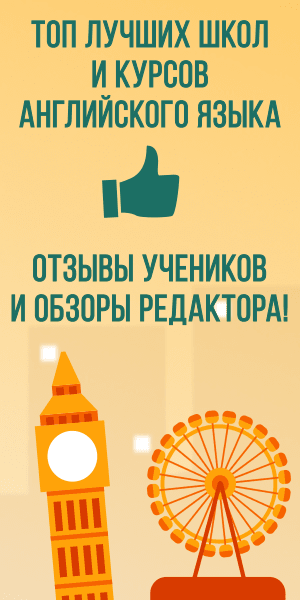Английская неадаптированная классика теперь доступна широкой аудитории, и из этого списка можно выбрать книги разного уровня, и если выработать стратегию работы с неадаптированной литературой, вполне реально осилить и эту неподъемную ношу.
После первого вдохновенного прочтения Оскара Уальда или Артура Конан Дойля, возникает желание почитать что-то посерьезнее. Конечно же, женской половине нашей аудитории, непременно вспомнится Джейн Остин и ее остроумный юмор, с которым она описывает светскую жизнь 18-го века. Не раз приходится слышать, что на английском языке романы Остин читаются сложно и грузно.
Несмотря на то, что за последние двести лет английский язык очень изменился, читать Остин не менее интересно. Необходимо только распознавать сложные грамматические структуры, потому что без основательных знаний грамматики, даже если Вы переведете все слова в предложении, собрать их будет очень трудно. Сегодня я предлагаю Вам 4 основные структуры, которые Вам нужно знать для чтения романов Джейн Остин, и не только. Некоторые из приведенных ниже выражений встречаются и в повседневной речи. Прочитайте примеры в таблице, затем обратите внимание на то, как Остин использует эти выражения в своем романе “Эмма”.
| # | Name or the structure | Formula | Meaning (translation) | Example (from Jane Austen’s Emma) |
| 1 | Complex Subject
He seems to speak English well. She is known to have traveled around the world. |
1) Subject +
2) Seem/appear/be sure/be likely/be unlikely OR be reported/be said/be known/be thought + 3) Infinitive(simple, continuous, perfect) |
Кажется, что он хорошо говорит по-английски
He seems to speak English well. Ему наверняка уже50 лет. He is sure to be50. Говорят, что он сейчас путешествует по Европе. He is said to be traveling around Europe. Как сообщают, президент уже покинул переговоры. The president is reported to have left the negotiations. |
Emma Woodhouse, handsome, clever, and rich, with a comfortable home and happy disposition, seemed to unitesome of the best blessings of existence; and had lived nearly twenty-one years in the world with very little to distress or vex her. |
| 2 | For + Infinitive construction (different functions)
It’s easy for you to say. He spoke too quickly for her to understand. The first thing for me to do is to find out when the bus arrives. |
1) For +
2) Noun(pronoun) + 3) Infinitive(active or passive) |
It’s easy for you to say that.
Вам легко это говорить. (for you to say – сложное подлежащее) The water was too cold for the children to swim. Вода была слишком холодной, чтобы дети могли плавать. (сложное обстоятельство). |
Her mother had died too long ago for her to havemore than an indistinct remembrance of her caresses… |
| 3 | Inversion
Inversion is the change of a common word order in the English language for emphatic purposes. I have never seen such a terrible behavior. Never have I seen such a terrible behavior. The situation was so strange that I couldn’t sleep. So strange was the situation that I couldn’t sleep. |
The following structures take the place of a subject (the subject follows the verb):
1. Not only… but also 2. Never, rarely, seldom 3. Hardly, barely, no sooner, scarcely. 4. So, such, that 5. Little (negative) 6. Inverted conditionals |
Not only did he speak poor English, (but) he also knew nothing about his own language. Он не только плохо говорил на английском, он совершенно ничего не знал о своем родном языке.
Never have I been so insulted! Меня еще никогда так не оскорблял! No sooner had he finished dinner when she walked in the door. Не успел он закончить ужинать, как она вошла. So strange was the situation that I couldn’t sleep. Ситуация была такая странная, что я не мог заснуть. Should anyone call, tell them I’ve gone to the bank. Если кто-то позвонит, передайте, что я ушла в банк. |
Sixteen years had Miss Taylor been in Mr. Woodhouse’s family… |
| 4 | It is … that
It is … since It was I that (who) met the sisters yesterday. It was after he returned from the trip that she told him she was expecting a child. |
1. It is (it was)
2. Any part of the sentence 3. That (who), which, etc. or until I met his sisterin the parkyesterday. It was I thatmet his sister in the park yesterday. It was his sister that I met in the park yesterday. It was in the park that I met his sister yesterday. |
It was after he returned from the trip that she told him she was expecting a child.
Только после того, как он вернулся из поездки, она рассказала ему, что ждала ребенка. It was not until (till) she returned home that she found out the truth. Только когда она вернулась домой, она узнала правду. |
It was Miss Taylor’s loss which first brought grief.
It was on the wedding-day of this beloved friend thatEmma first sat in mournful thought of any continuance. |
| 5 | Using preposition “of” and absolute pronouns
A friend of hers A book of theirs A man of good character |
A friend of somebody’s
A friend of his/hers Noun + noun in Possessive case Noun + absolute possessive pronouns |
I – my book = mine You – your book = yours He – his book = his e.g.: A book of mine = my book – моя книга A friend of hers = her friend – ее друг(подруга) A company of theirs = their company (их компания) |
[She was] interested in herself, in every pleasure, every scheme of hers… |
| 6 | Be + infinitive | Be + to do = He is to do = he has to do (he has an obligation to do something, it is necessary that he do something) | I am to complete this assignment by Friday = Мне необходимо закончить это задание к пятнице.
I was to submit this report by the end of December – Я должен был сдать этот отчет к концу декабря. |
How was she to bearthe change? |
| 7 | Could not but…/could not help but | She could not but do something/ couldn’t help but do something = she had no other choice except this.
Contemporary option: I couldn’t help doing something |
She couldn’t but goand visit her sister at the hospital = Она не могла не пойти и навестить свою сестру в больнице.
Современный вариант: She couldn’t help visiting her sister at the hospital. = Она не могла не пойти и навестить свою сестру в больнице. |
Emma could not but sigh over it and wish for impossible things. […] |
| 8 | Gerund construction
Preposition+ Gerund |
Upon (on) doing something = after doing something.
Upon having done = after they have done something Upon something (or possessive) being done = (passive) – after something was done (after somebody has done something). |
Upon completing the assignment he left the room. После того, как он закончил задание, он вышел из комнаты.
Upon their completing the assignment he left the room. После того, как они закончили задание, он вышел из комнаты. Upon their being left to each other they started cleaning the house. После того, как их оставили одних, они начали убирать в доме. |
A large debt of gratitude was owing here; but the intercourse of the last seven years, the equal footing and perfect unreserve which had soon followed Isabella’s marriage on their being left to each other, was yet a dearer, tenderer recollection. |
Если вы нашли ошибку или другую проблему, мы будем благодарны за ваше сообщение!
Есть несколько различных вариантов, как это сделать:
- Выделите текст с ошибкой, нажмите сочетание клавиш CTRL+ENTER, в открывшемся окне опишите проблему и отправьте нам!
- Напишите в комментариях ниже о найденной проблеме
- Воспользуйтесь контакт формой








